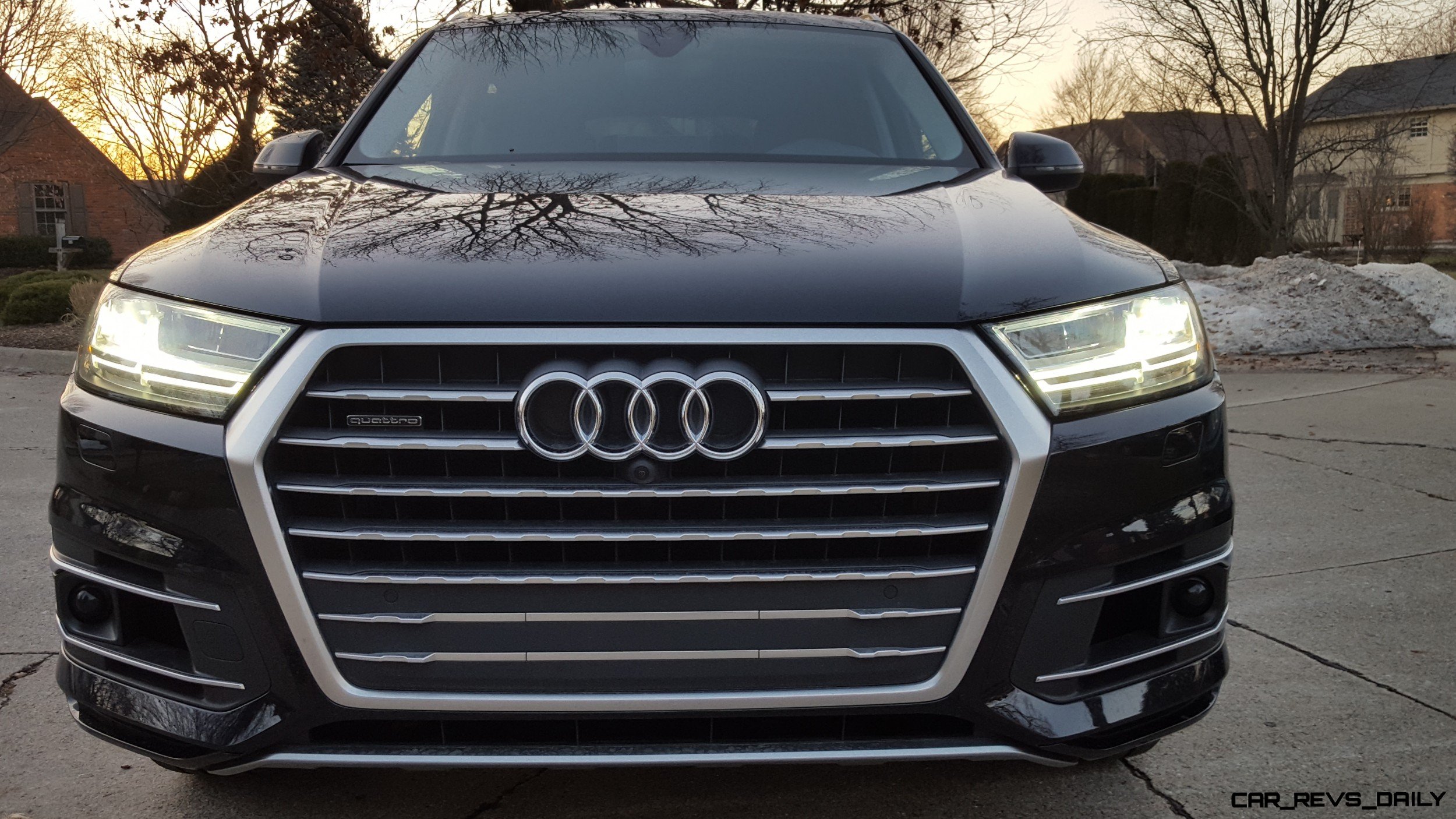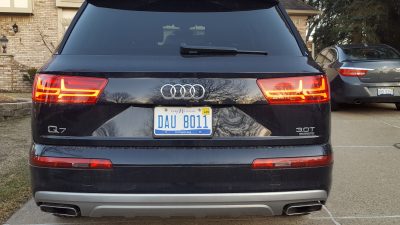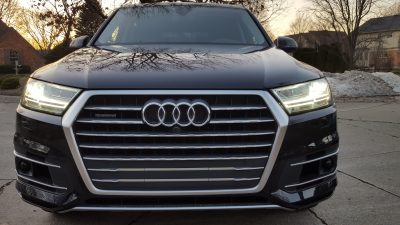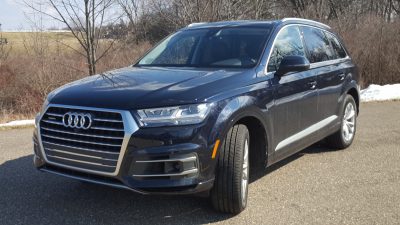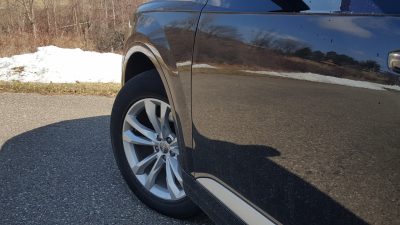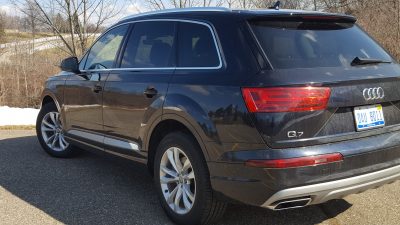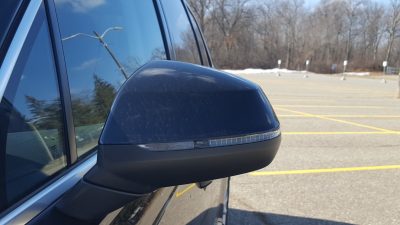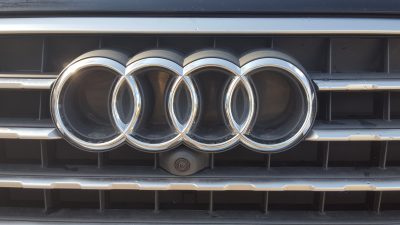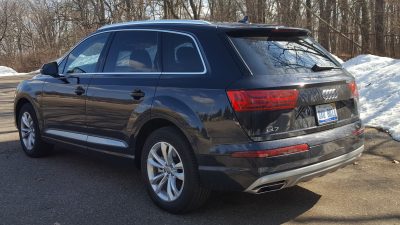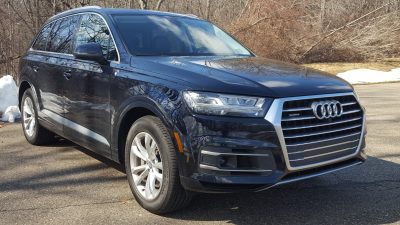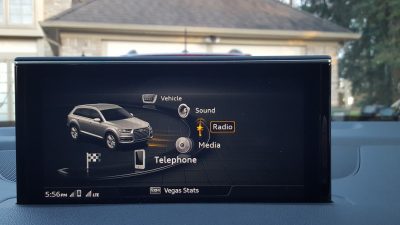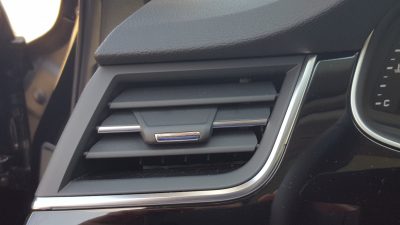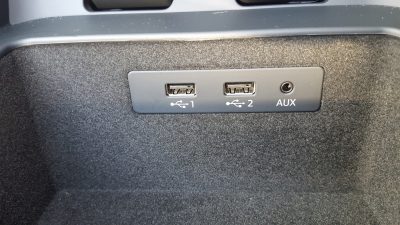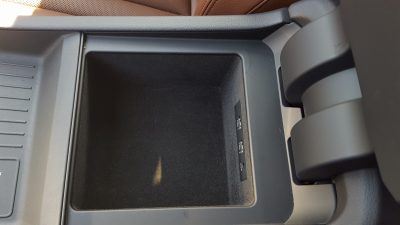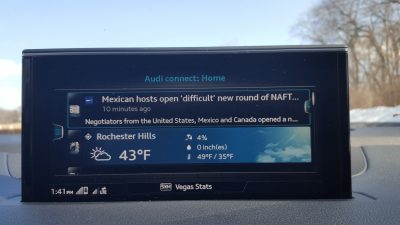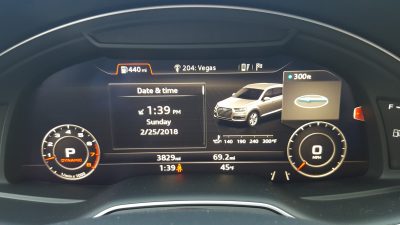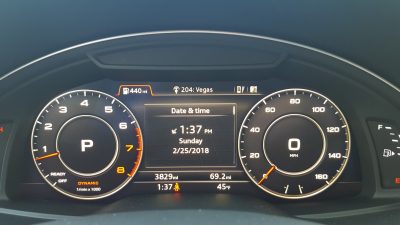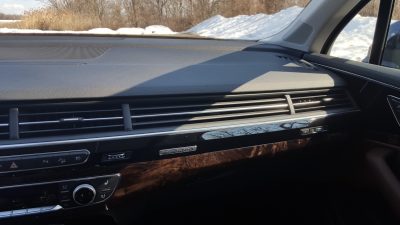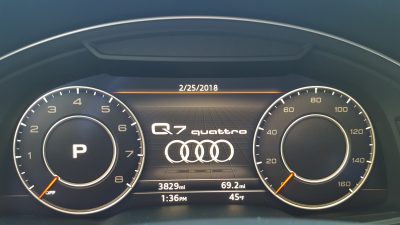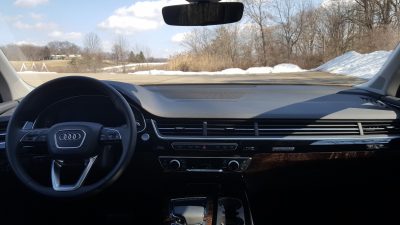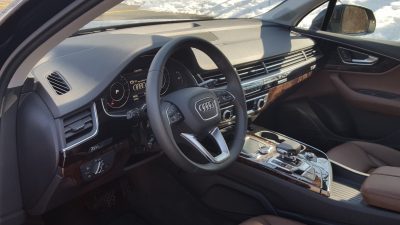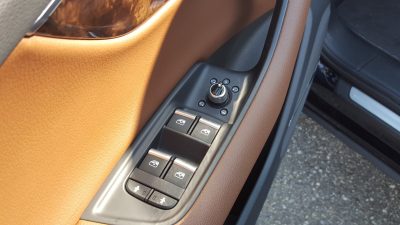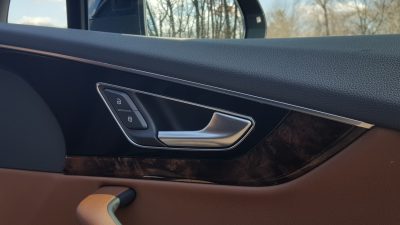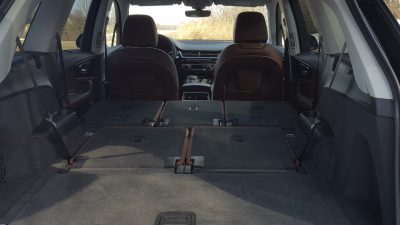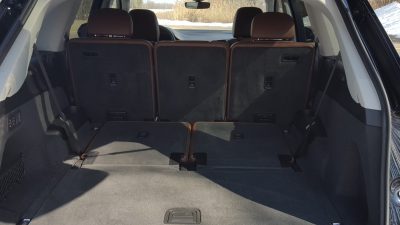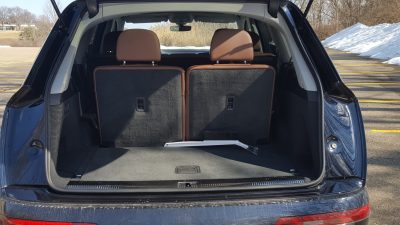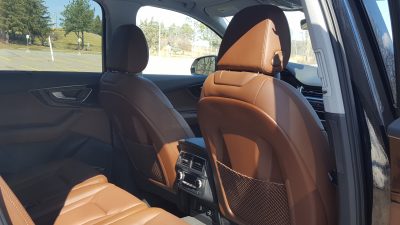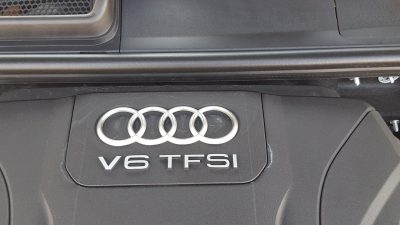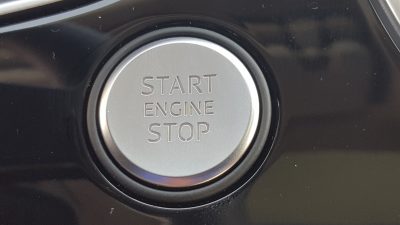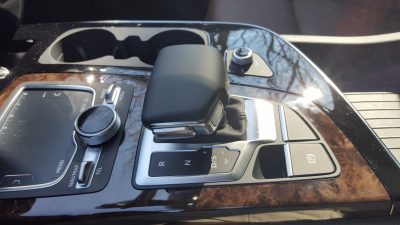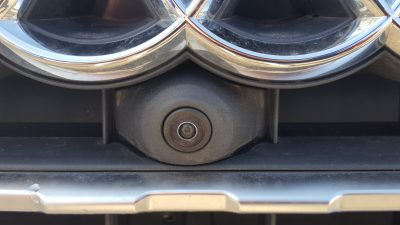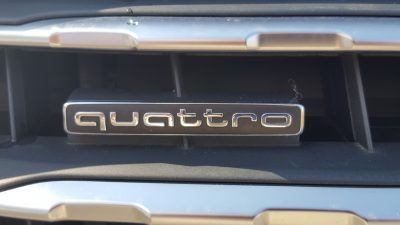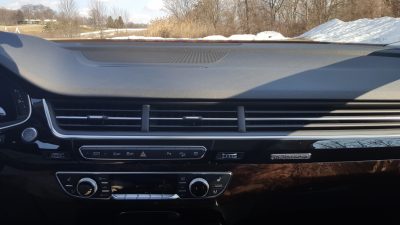With the way crossover entries have evolved over the past several decades, automakers are scrambling to keep more established entries relevant as the segment rapidly evolves.
One of these is the venerable Audi Q7 which is the biggest and most opulent (for the moment) entry fielded by the German luxury car giant.
When it first appeared in the U.S. back in 2007, it represented a seismic shift for Audi, and turned the once car focused brand into a more balanced juggernaut.
As for the Q7, it was a key entry in Volkswagen’s greater ploy towards expanding its diesel lineup.
This was taken a step further later in its life, when Audi shoved a V12 diesel engine under the hood. However, this mighty engine and its distinctively Audi lines couldn’t mask the fact that it was an aging offering, and eventually, it began to fall behind rivals from BMW, Mercedes, and even Volvo.
The 2018 Q7 received minor updates for the new model year (it debuted in 2017,) but do they allow the Q7 to surpass its rivals? Or does the Q7 still have some room for improvement before it can formally topple the segment’s benchmarks.
The exterior styling of our Night Black metallic tester will certainly not set the world on fire with its aesthetic appeal. The look is handsome, but in typical Audi fashion, its not racy, and does not take risks unlike recent Lexus and even BMW offerings. The slick suit of clothes also does a pretty good job slimming the Q7’s appearance somewhat, and making it look like a tall wagon versus a formal utility vehicle.
The chunky overtones also highlight the athleticism that exists in the broader design, and definitely enhances the side profile, which makes up for the rather bland but still handsome rear end. Lastly, while the wheels on our tester looked pretty sharp as is, the Q7’s styling really pops when it is equipped with bigger rims, especially in higher trims.
The interior of our tester matches the exterior’s reserved personality. Minimalism is the order of the day, but don’t let that fool you into thinking that the Q7 has sacrificed the core elements of its upscale DNA to pull it off.
This is still a relatively posh space to spend time in, with comfortable leather seats, high quality materials, and plenty of electronic gadgets throughout. A key change for 2018 is the addition of Audi’s Advance Key passive entry system to the entire Q7 range. Once limited to select trims of the Q7, the addition of this feature across the lineup gives buyers push-button start, as well as memory settings for the drivers seat.
The packaging here is competitively targeted towards segment benchmarks, especially in terms of occupant comfort, with the first and and second row seats being comparable to rivals such as the Acura MDX, the Lexus GX460, and the Volvo XC90.
However, our gripes with the seating began once we ventured into the third row. Accommodations in this region are very tight, and even bigger children will find themselves wanting more leg room.
So reserve that space for either the smallest of passengers, or do what we did and fold it down for more cargo space. Speaking of folding the seats, the second row proved to be a clumsy and awkward beast to manipulate, with the resulting opening being quite small which made access to the third row somewhat difficult.
Thankfully, the interior of the Q7 managed to standout in other ways. Our tester featured Audi’s Digital Cockpit display, and like our last encounter with the system on the A4, it did an excellent job delivering precise information and looked just as cool now as it did then.
We also liked the latest iteration of Audi’s MMI system, and the Q7’s visit also marked the first time we got to experience its all new hand writing recognition feature. Primarily used in both the telephone and navigation sections of the MMI system, it allows drivers to use their finger to search for items by writing single letters.
This author’s dysgraphia proved to be a good test for the feature, and i’m pleased to report that it passed with flying colors especially in regards to letter accuracy.
Performance for our tester came from Audi’s 3.0 liter supercharged (versus turbocharged as suggested by the prominent “T” in its badging) V6 which delivered a healthy 333 horsepower, and a respectable 325 lb-ft of torque. The Q7 is not a sports car, but the engine did pull solidly off the line, and was a confident partner both in the city and out on the freeway.
This spirited engine excels in low end acceleration, and power delivery is crisp and very linear. The eight speed automatic in our tester delivered smooth shifts, and as usual, sharpened up its game when placed in sport mode. It did take a brief learning curve to get acclimated to the shifter mounted Park button, but this is a minor annoyance that does go away with time.
Handling in our tester was smooth and composed, though sharp cornering did make us wish for the optional performance tires and bigger 21-inch rims. They help mask some of the Q7’s bulk, which makes itself known when the big crossover is pushed hard.
Otherwise, the rest of the driving experience is first rate with the adjustable air suspension offering a high degree of customization and comfort, while the four wheel steering system gives the Q7 a surprising degree of precision in twistier sections of tarmac.
Braking was secure and stable and visibility was good all around. This latter item helped make parking the Q7 in narrow parking lots easy, especially with its myriad of sensors and birds eye view rear backup camera providing assistance.
The 2018 Q7 also features the nearly bulletproof 2.0 liter turbocharged four cylinder as an optional engine choice, which helps make the Q7 accessible to more buyers. However, for those that need more towing power, or place a higher priority on performance, we suggest paying the extra $6,500 for the V6 it’s worth it.
Pricing for the 2018 Audi Q7 begins at $49,900 for the base 2.0 liter model, with prices going up accordingly across the model lineup. Our V6 powered Premium grade tester had a higher base price of $56,400 which is roughly on par with others in its segment.
However, unlike the minimalist vibes projected by the exterior and interior, our tester’s extensive options list proved to be the most noticeable aspect of its bag of tricks. Added together our tester arrived with over $11,000 in optional extras which included the $2,000 Vision Package, the $2,400 Driver Assistance Package, as well as the $4,000 Premium Plus package.
This total also includes the $975 destination fee, and is certainly a hefty price to pay for the Q7’s high levels of luxury. Our advice is to strategically choose key packages, which will help reduce the price of admission somewhat.
Overall the 2018 Audi Q7 brings plenty of style, technology, and performance to luxury SUV buyers. While we are curious to see how the Q7 evolves to accommodate the eventual appearance of the Q8 flagship model, as it stands now, it is a very capable offering, and we look forward to seeing what other changes are in store in the years to come.
Especially if the Q7 gains a formal performance offering to take on the best offered by BMW and Porsche out on a weekend track day.
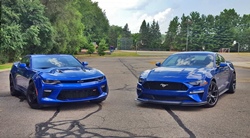
Carl Malek has been an automotive journalist for over 10 years. First starting out as a freelance photographer before making the transition to writing during college, his work has appeared on numerous automotive forums as well as websites such as Autoshopper.com.
Carl is also a big fan of British vehicles with the bulk of his devotion going to the Morgan Motor Company as well as offerings from Lotus, MG, and Caterham. When he is not writing about automobiles, Carl enjoys spending time with his family and friends in the Metro Detroit area, as well as spending time with his adorable pets.

